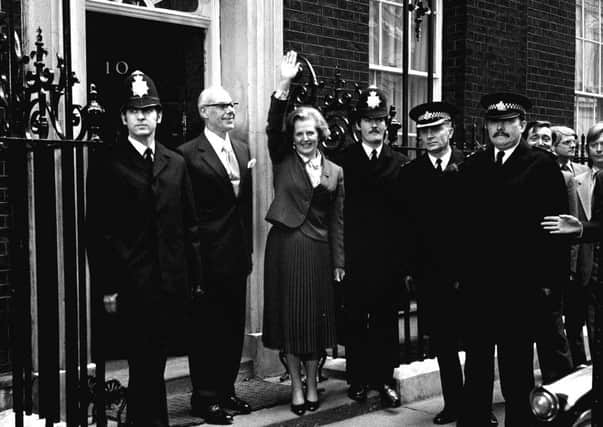Paid less than in 2009? Why Margaret Thatcher shares the blame – Helen Martin


WHEN people get older it becomes almost unavoidable to compare their past lifestyle and experience with the present regime. The world changes more and more rapidly as time moves on.
For the first time in my 60-plus years, it has now been revealed that Scots earn less than they did ten years ago. Folk of my age never expected that to happen.
Advertisement
Hide AdAdvertisement
Hide AdYes, I have for years recognised the growing wage gap and bashed my wee drum about it. But employees earning less than they did in 2009? That’s a shocker.
Figuring out who or what is to blame is often used by party political loyalists who want to accuse the opposition. But this awful trend doesn’t fall on just one party.
One of the greatest individual contributors was Margaret Thatcher. But she was a sole lady, and one who even many of today’s Tories feel was too extremist, either not caring or not knowing how damning her strategies were. She flushed away most trades unions (some of whom admittedly were too greedy and ignored employee corruption and cheating) and reduced the power of the few who remained.
But rather than setting up a reformed, improved method of representation, she left most employees with no powers of negotiation at all. Employers held all the cards, putting profit, executive salaries, investments and shareholders’ pay-offs as priorities, before even considering staff payments and rises. That’s not how things used to be.
Advertisement
Hide AdAdvertisement
Hide AdOf course, she initiated the right-to-buy for council housing, something that has led to our housing shortage but has not directly related to wages.
Post-Thatcher, one thing all governments and parties have done to a certain extent is try to earn themselves brownie points by allowing negotiations for public sector pay and pensions.
But none have done anything to support private sector workers. The minimum wage is less than the “minimum” people need to earn, and even the greater Living Wage is only £9 an hour – which employers are not obliged to pay.
Nor has any government tried to make annual wage rises compulsory, even if senior management and executives receive rises and bonuses. Any country’s wealth depends on the spending ability of its residents to buy products and services, boost employment, and afford taxes. The wealth of one large firm’s highly-paid chief executive doesn’t benefit businesses, retail etc as much as even a fraction of such discretionary income for hundreds or thousands of staff. The poorer ordinary folk are, the less businesses succeed.
Advertisement
Hide AdAdvertisement
Hide AdImproving the dire low pay situation we are in, whether we are in or out of the EU, the UK, coping with automated and robotic advancement, or any other challenge, will take many more decades. But if all governments and parties ignore plans, strategies and laws to start that journey, we are doomed to become an impoverished state.
Capitalism is like paracetamol. Limited, it can be workable. But an overdose is deadly.
